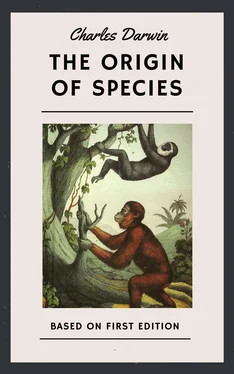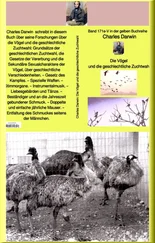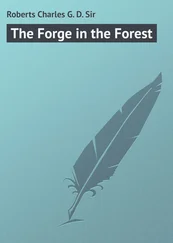Charles Darwin - Charles Darwin - The Origin of Species (First Edition)
Здесь есть возможность читать онлайн «Charles Darwin - Charles Darwin - The Origin of Species (First Edition)» — ознакомительный отрывок электронной книги совершенно бесплатно, а после прочтения отрывка купить полную версию. В некоторых случаях можно слушать аудио, скачать через торрент в формате fb2 и присутствует краткое содержание. Жанр: unrecognised, на английском языке. Описание произведения, (предисловие) а так же отзывы посетителей доступны на портале библиотеки ЛибКат.
- Название:Charles Darwin: The Origin of Species (First Edition)
- Автор:
- Жанр:
- Год:неизвестен
- ISBN:нет данных
- Рейтинг книги:5 / 5. Голосов: 1
-
Избранное:Добавить в избранное
- Отзывы:
-
Ваша оценка:
- 100
- 1
- 2
- 3
- 4
- 5
Charles Darwin: The Origin of Species (First Edition): краткое содержание, описание и аннотация
Предлагаем к чтению аннотацию, описание, краткое содержание или предисловие (зависит от того, что написал сам автор книги «Charles Darwin: The Origin of Species (First Edition)»). Если вы не нашли необходимую информацию о книге — напишите в комментариях, мы постараемся отыскать её.
Charles Darwin: The Origin of Species (First Edition) — читать онлайн ознакомительный отрывок
Ниже представлен текст книги, разбитый по страницам. Система сохранения места последней прочитанной страницы, позволяет с удобством читать онлайн бесплатно книгу «Charles Darwin: The Origin of Species (First Edition)», без необходимости каждый раз заново искать на чём Вы остановились. Поставьте закладку, и сможете в любой момент перейти на страницу, на которой закончили чтение.
Интервал:
Закладка:
Having alluded to the subject of reversion, I may here refer to a statement often made by naturalists—namely, that our domestic varieties, when run wild, gradually but certainly revert in character to their aboriginal stocks. Hence it has been argued that no deductions can be drawn from domestic races to species in a state of nature. I have in vain endeavoured to discover on what decisive facts the above statement has so often and so boldly been made. There would be great difficulty in proving its truth: we may safely conclude that very many of the most strongly-marked domestic varieties could not possibly live in a wild state. In many cases we do not know what the aboriginal stock was, and so could not tell whether or not nearly perfect reversion had ensued. It would be quite necessary, in order to prevent the effects of intercrossing, that only a single variety should be turned loose in its new home. Nevertheless, as our varieties certainly do occasionally revert in some of their characters to ancestral forms, it seems to me not improbable, that if we could succeed in naturalising, or were to cultivate, during many generations, the several races, for instance, of the cabbage, in very poor soil (in which case, however, some effect would have to be attributed to the direct action of the poor soil), that they would to a large extent, or even wholly, revert to the wild aboriginal stock. Whether or not the experiment would succeed, is not of great importance for our line of argument; for by the experiment itself the conditions of life are changed. If it could be shown that our domestic varieties manifested a strong tendency to reversion,—that is, to lose their acquired characters, whilst kept under unchanged conditions, and whilst kept in a considerable body, so that free intercrossing might check, by blending together, any slight deviations of structure, in such case, I grant that we could deduce nothing from domestic varieties in regard to species. But there is not a shadow of evidence in favour of this view: to assert that we could not breed our cart and race-horses, long and short-horned cattle, and poultry of various breeds, and esculent vegetables, for an almost infinite number of generations, would be opposed to all experience. I may add, that when under nature the conditions of life do change, variations and reversions of character probably do occur; but natural selection, as will hereafter be explained, will determine how far the new characters thus arising shall be preserved.
When we look to the hereditary varieties or races of our domestic animals and plants, and compare them with species closely allied together, we generally perceive in each domestic race, as already remarked, less uniformity of character than in true species. Domestic races of the same species, also, often have a somewhat monstrous character; by which I mean, that, although differing from each other, and from the other species of the same genus, in several trifling respects, they often differ in an extreme degree in some one part, both when compared one with another, and more especially when compared with all the species in nature to which they are nearest allied. With these exceptions (and with that of the perfect fertility of varieties when crossed,—a subject hereafter to be discussed), domestic races of the same species differ from each other in the same manner as, only in most cases in a lesser degree than, do closely-allied species of the same genus in a state of nature. I think this must be admitted, when we find that there are hardly any domestic races, either amongst animals or plants, which have not been ranked by some competent judges as mere varieties, and by other competent judges as the descendants of aboriginally distinct species. If any marked distinction existed between domestic races and species, this source of doubt could not so perpetually recur. It has often been stated that domestic races do not differ from each other in characters of generic value. I think it could be shown that this statement is hardly correct; but naturalists differ most widely in determining what characters are of generic value; all such valuations being at present empirical. Moreover, on the view of the origin of genera which I shall presently give, we have no right to expect often to meet with generic differences in our domesticated productions.
When we attempt to estimate the amount of structural difference between the domestic races of the same species, we are soon involved in doubt, from not knowing whether they have descended from one or several parent-species. This point, if it could be cleared up, would be interesting; if, for instance, it could be shown that the greyhound, bloodhound, terrier, spaniel, and bull-dog, which we all know propagate their kind so truly, were the offspring of any single species, then such facts would have great weight in making us doubt about the immutability of the many very closely allied and natural species—for instance, of the many foxes—inhabiting different quarters of the world. I do not believe, as we shall presently see, that all our dogs have descended from any one wild species; but, in the case of some other domestic races, there is presumptive, or even strong, evidence in favour of this view.
It has often been assumed that man has chosen for domestication animals and plants having an extraordinary inherent tendency to vary, and likewise to withstand diverse climates. I do not dispute that these capacities have added largely to the value of most of our domesticated productions; but how could a savage possibly know, when he first tamed an animal, whether it would vary in succeeding generations, and whether it would endure other climates? Has the little variability of the ass or guinea-fowl, or the small power of endurance of warmth by the rein-deer, or of cold by the common camel, prevented their domestication? I cannot doubt that if other animals and plants, equal in number to our domesticated productions, and belonging to equally diverse classes and countries, were taken from a state of nature, and could be made to breed for an equal number of generations under domestication, they would vary on an average as largely as the parent species of our existing domesticated productions have varied.
In the case of most of our anciently domesticated animals and plants, I do not think it is possible to come to any definite conclusion, whether they have descended from one or several species. The argument mainly relied on by those who believe in the multiple origin of our domestic animals is, that we find in the most ancient records, more especially on the monuments of Egypt, much diversity in the breeds; and that some of the breeds closely resemble, perhaps are identical with, those still existing. Even if this latter fact were found more strictly and generally true than seems to me to be the case, what does it show, but that some of our breeds originated there, four or five thousand years ago? But Mr. Horner's researches have rendered it in some degree probable that man sufficiently civilized to have manufactured pottery existed in the valley of the Nile thirteen or fourteen thousand years ago; and who will pretend to say how long before these ancient periods, savages, like those of Tierra del Fuego or Australia, who possess a semi-domestic dog, may not have existed in Egypt?
The whole subject must, I think, remain vague; nevertheless, I may, without here entering on any details, state that, from geographical and other considerations, I think it highly probable that our domestic dogs have descended from several wild species. In regard to sheep and goats I can form no opinion. I should think, from facts communicated to me by Mr. Blyth, on the habits, voice, and constitution, etc., of the humped Indian cattle, that these had descended from a different aboriginal stock from our European cattle; and several competent judges believe that these latter have had more than one wild parent. With respect to horses, from reasons which I cannot give here, I am doubtfully inclined to believe, in opposition to several authors, that all the races have descended from one wild stock. Mr. Blyth, whose opinion, from his large and varied stores of knowledge, I should value more than that of almost any one, thinks that all the breeds of poultry have proceeded from the common wild Indian fowl (Gallus bankiva). In regard to ducks and rabbits, the breeds of which differ considerably from each other in structure, I do not doubt that they all have descended from the common wild duck and rabbit.
Читать дальшеИнтервал:
Закладка:
Похожие книги на «Charles Darwin: The Origin of Species (First Edition)»
Представляем Вашему вниманию похожие книги на «Charles Darwin: The Origin of Species (First Edition)» списком для выбора. Мы отобрали схожую по названию и смыслу литературу в надежде предоставить читателям больше вариантов отыскать новые, интересные, ещё непрочитанные произведения.
Обсуждение, отзывы о книге «Charles Darwin: The Origin of Species (First Edition)» и просто собственные мнения читателей. Оставьте ваши комментарии, напишите, что Вы думаете о произведении, его смысле или главных героях. Укажите что конкретно понравилось, а что нет, и почему Вы так считаете.












